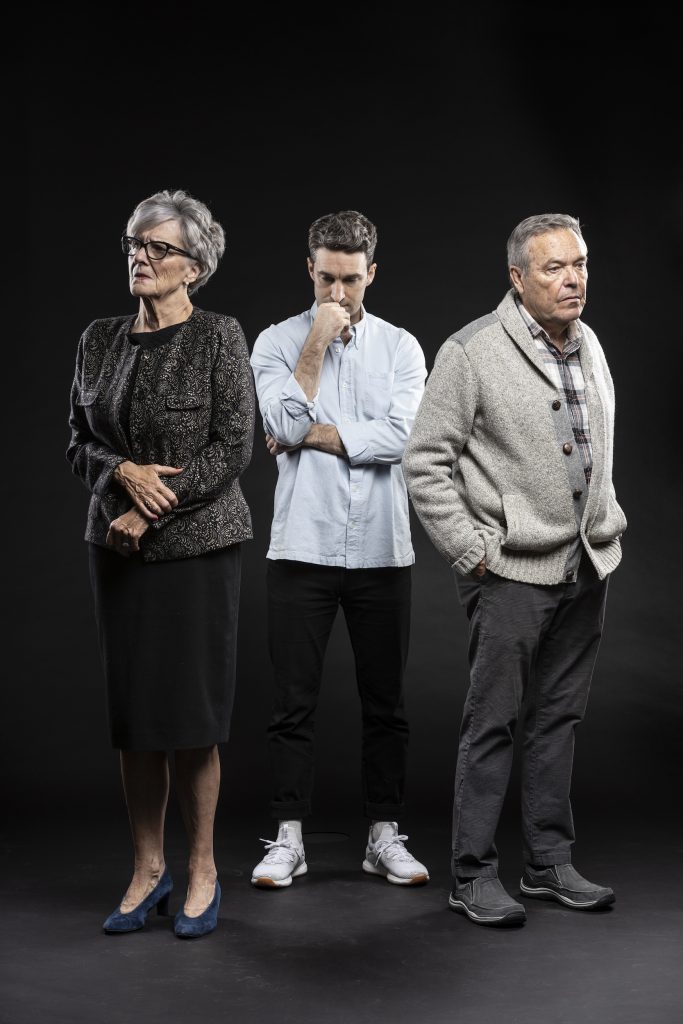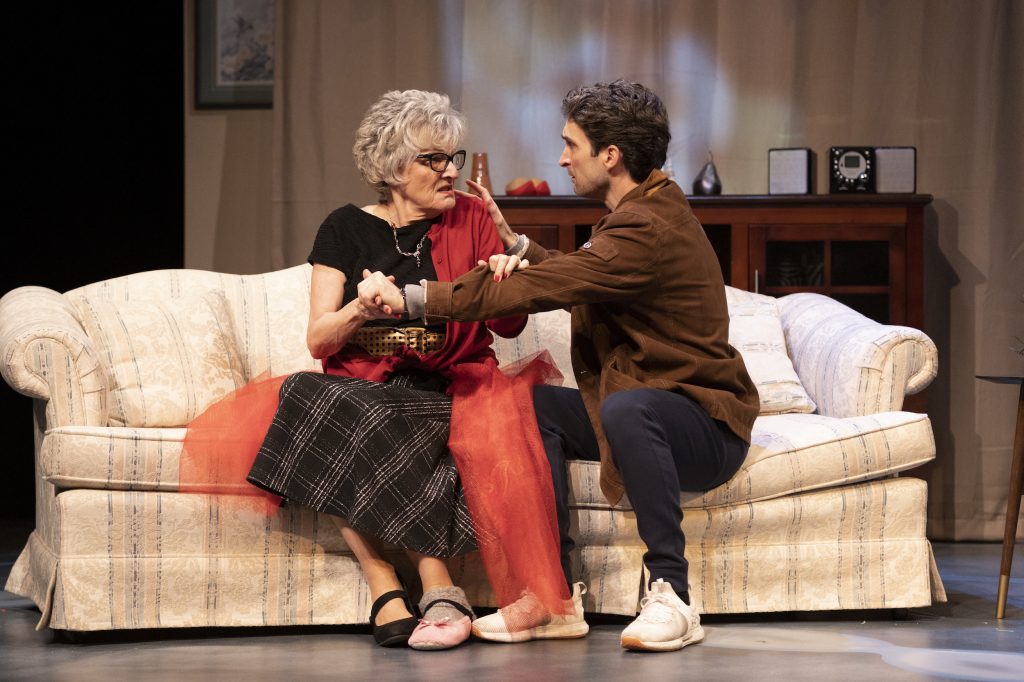
Credit: Shimon Photo
At Waterfront Theatre to January 22, 2023
Tickets from $15 at mitchandmurrayproductions.com
Posted January 15, 2023
The Sandwich Generation is not new but a couple of things have changed: people are living longer and more likely to suffer cognitive decline. As well, some couples are having children later in life than in the past. This means that those who find themselves ‘sandwiched’ might be dealing with parents with dementia while, at the same time, caring for their own newborn. It’s a recipe for frustration and heartache.
This has been the world of Aaron Craven, playwright and artistic director of Mitch and Murray Productions, when both his mother and father were diagnosed with Alzheimer’s and dementia, respectively. Juggling his parents, his marriage, his career and a new little family member created an explosive situation.

Credit: Shimon Photo
Director David Mackay brings together some of Vancouver’s finest: Charlie Gallant and Olivia Hutt who portray Edward and Sara, a couple with a new baby; and Patti Allan and Tom McBeath as Edward’s parents Judith and Bob, still living in their own home but both recently diagnosed with cognitive deterioration. Judith has called 911 several times to report a stranger in the house (her husband of many years) and Bob no longer knows how to deal with her. Rounding out the cast are Leslie Dos Remedios, Jesse Miller and Eric Breker.
While Edward is the protagonist it is Sara who brings things to a head and, as Sara, actor Olivia Hutt brings sensitivity, compassion and patience to the character. Perhaps it’s because Judith and Bob are Edward’s parents – not hers – that Sara has a little more distance. But Sara’s quiet strength while Edward is falling apart, losing his temper and unable to remember his lines during an audition, eventually triggers change in Edward’s approach to the situation. There’s nothing to be gained by impatience and anger and everything to be gained by acceptance and kindness. When Gallant, as Edward, finally makes the shift, we breathe a great sigh of relief.

Credit: Shimon Photo
Patti Allan takes us on an emotional journey beginning with witnessing her character’s flirtatious behaviour with the cop who has responded to her 911 call right through to her eventual meltdown; “I hate you. I hate you. I hate you”, she screams at Edward when it is finally obvious that she must be moved out of her home to a care facility.
As her husband Bob, Tom McBeath is quietly but increasingly befuddled, driving Edward slightly crazy when his dad can’t figure out how to do something relatively simple on his laptop.
Playwright Craven makes efforts to lighten the tone but, truly, there’s not much to laugh at as we watch two decent human beings fall apart. My thought was, I confess, “Shoot me now” before I put my own adult children through this particular kind of hell.

Credit: Shimon Photo
But there is also joy in Instantaneous Blue as Bob and Judith find each other when dancing to the tunes of their early adulthood. And in a moment reminiscent of Sarah Polley’s Away From Her, there is tremendous pleasure seeing Edward’s acceptance of his mother’s condition.
A realistic play on David Roberts’ realistic set, there is, however, a scene so shocking that one is tempted to think that the playwright must have actually experienced it. You would not want to make this scene up. Even Tennessee Williams in A Streetcar Named Desire spares us – and Blanche Dubois – the horror of this particular scenario.
But in a beautiful piece of staging, Instantaneous Blue instantaneously lifts up at the end. It’s a tableau to hold onto, taking the play from heartache and sorrow to hope and joy in one bold moment. It’s a reminder that life is both light and dark and, like the rest of the play, the moment rings true.

